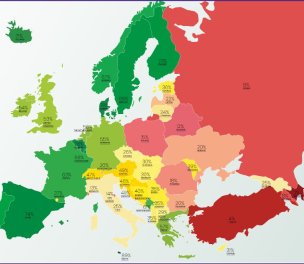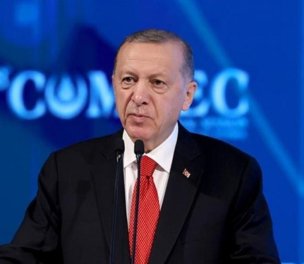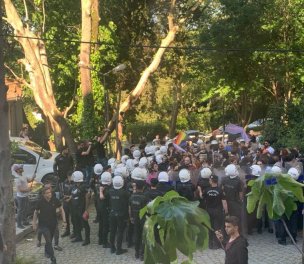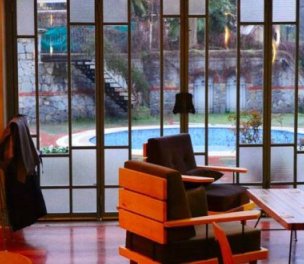Seventy students on trial for Boğaziçi pride participation amid torture allegations
.jpg)
Photo: unikuir.org
Click to read the article in Turkish (1)(2)
A mere 12 hours after President Recep Tayyip Erdoğan addressed the opposition as LGBT and denounced these groups as "perverted movements" in his electoral victory speeches, a collective comprising of approximately 70 students from one of Turkey's most prestigious universities, along with foreign exchange students, an academic, and a journalist, were summoned to a three-day trial at the 58th Criminal Court of First Instance in İstanbul.
They face imprisoned for up to three years for 'resisting the police and opposing demonstration laws' during their participation or presence at the 9th Pride Parade at Boğaziçi University on May 20, 2022.
The walk was organized by the university's LGBTIA+ club, BÜLGBTİA+, which controversial former rector Melih Bulu shut down the year prior.
Before the parade's scheduled start, civil police and private security blocked the assembly area, and the head of security announced that the march would not be permitted. The university administration had banned all events for that day except the Taşoda Music Festival.
When the students attempted to walk to the BÜLGBTİA+'s clubroom, riot police intervened, resulting in numerous detentions and alleged torture.
'This march is a tradition'
On May 29, the opening day of the hearing, closely monitored by consulate representatives, as well as human rights and LGBTI+ organizations, about 20 individuals presented their defense.
A common theme throughout their statements was the lack of a dispersal warning, police violence, and the denial of basic needs while in custody. They also strongly emphasized their right to freedom of expression and protest and denied involvement in the alleged misconduct.
"I exercised my freedom of expression and right to protest. This march is a tradition. The police detained us without giving a warning," one defendant said.
Another student echoed similar sentiments, stating that they were at the university for a festival and the pride march, not as part of a protest, further accusing the police of forcefully detaining students without issuing any warning and using excessive force.
"They applied brute force to us. They handcuffed us. Despite our request for water, they did not provide us with water or food. They did not allow us to use the restroom," the alleged delinquent expressed.
'Don't you like this?'
Despite the continuous plea to "disperse," the police persisted in their assault, according to the defendants.
"We were not allowed to disperse," one student remarks, underlining that İstanbul Security Branch Director Hanifi Zengin stated that they would be detained, whatever they would do.
"He said 'you will be taken into custody either willingly or by beating us up'. After we got on the bus, I saw them hitting our friend's head against the bus. They didn't give us food or water. We were kept in the bus in the dark," they added.
Another student alleged the authorities of psychological and physical violence and accused Zengin of ordering police officers to beat them up.
"He ordered six police officers to attack me, saying, 'We have taken your lover; now it's your turn.' I'll file a complaint against him and the officers he commanded," the defendant said while stuttering, further highlighting that they were unaware that their actions were prohibited, and describing how the police handcuffed them with five cable ties while being subject to verbal harassment.
"The police continued verbally abusing me, saying, 'Don't you like this,' the student stammered.
'Academia does not submit to coercion'
In a long statement, a Boğaziçi faculty member criticized the university's rector, emphasizing that students can live however they like.
"What should we say about the trustee rector who approved the detention of students at Boğaziçi? Let the students live as they want. This is not an academic expectation, nor an expectation at all," the scholar asserted, referring to the controversial decision by President Erdoğan to assign a rector by decree, bypassing the institution's democratic tradition.
The appointment in early 2021 of Melih Bulu, a member of the President's own Justice and Development Party (AKP), sparked widespread and continuous student protests, clashes with authorities, detentions and arrests.
Meanwhile, faculty members have consistently staged silent protests at the university's historic south campus.
Although Bulu was eventually removed from his position in the summer of 2021, his successor, Naci İnci, continued implementing controversial practices. These included a campus-wide ban on alcohol and the dismissal of prominent academics.
"If the academics at Boğaziçi had chosen a rector, I wouldn't have had to resign, and this court case wouldn't exist. Academia does not submit to coercion," the faculty member vehemently expressed.
'Not the first example of an LGBTI+ trial'
Today (May 30), during the second hearing at Europe's largest courthouse, the accused continued speaking out against their treatment during detention, asserting their innocence and rejecting the charges.
One student denied the allegations and stated they were handcuffed behind their back for an extended period. Another claimed they were detained without warning and held for hours, refuting the claims.
Like yesterday, multiple defendants argued that Zengin should be held accountable for their mistreatment.
One supposed delinquent claimed to have sustained an arm injury during detention and highlighted the struggles of the LGBTI+ community, stating that their movement remains resilient.
"The LGBTI+ struggle you are putting on trial, did not start today! This is not the first and only example of an LGBTI+ trial. LGBTI+s have been struggling for years. They have been on trial for years. We still haven't given up because our movement has learned to cope with this fear. So have I," they said, adding that they were only there to ask for their visibility, rights, and equality.
'A global dictatorship tool'
LGBTI+ rights in Turkey have been under severe pressure in recent years. While the İstanbul Pride has been banned since 2015, and 18+ restrictions have been placed on rainbow-themed merchandise online, large-scale anti-LGBTI+ rallies have been held and openly endorsed by AKP politicians.
Meanwhile, President Erdoğan repeatedly targets LBGTI+ groups during his speeches, such as in his victory rallies on Sunday (May 28). Previously, he referred to them as 'a global dictatorship tool' against Islam, labeled them perverts, and stated that they undermine the traditional family structure.
Moreover, the New Welfare Party (Yeniden Refah Partisi), part of the AKP-led People's Alliance and elected into the parliament, even made the closure of LGBTI+ associations one of their election promises.
One student characterized the opposition to their struggle as an objection to the right to live, "We are being deprived of exercising our most fundamental right, the right to live. We are subjected to discrimination and hatred. I was there to defend our rights. We were unlawfully detained even though there was no criminal offense."
These events over the years have resulted in Turkey being ranked the second-worst country for LGBTI+ rights in Europe, according to the Rainbow Index. Additionally, a recent EU Commission report highlights that the country's anti-discrimination legislation falls short of European standards, lacking specific laws to address hate speech and crimes based on sexual orientation and gender identity.
The trial will resume on Thursday (June 1).
(EMK/WM)
Preliminary probe into police violence during İmamoğlu protests
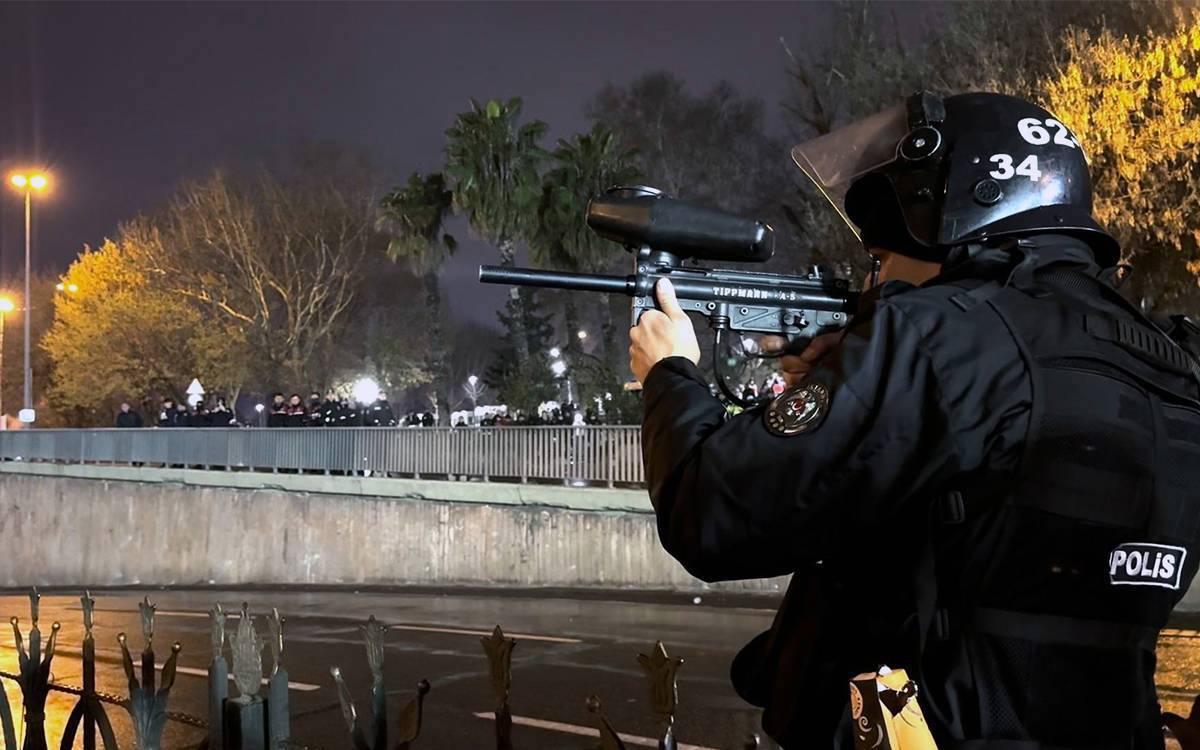
Astrologist released after two months in detention over social media post on Bahçeli’s health
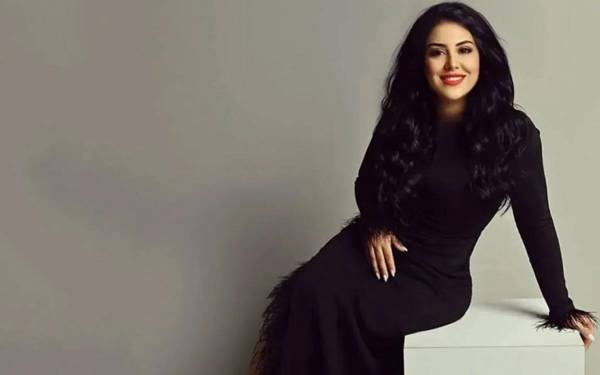
Over 100 youths released after mass arrests during İmamoğlu protests
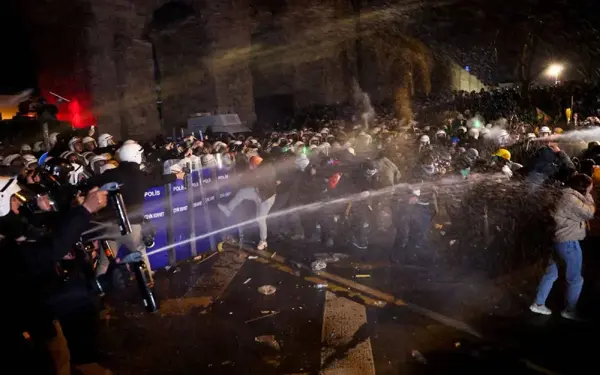
MALE VIOLENCE MONITORING REPORT MARCH 2025
Men killed 24 women in March
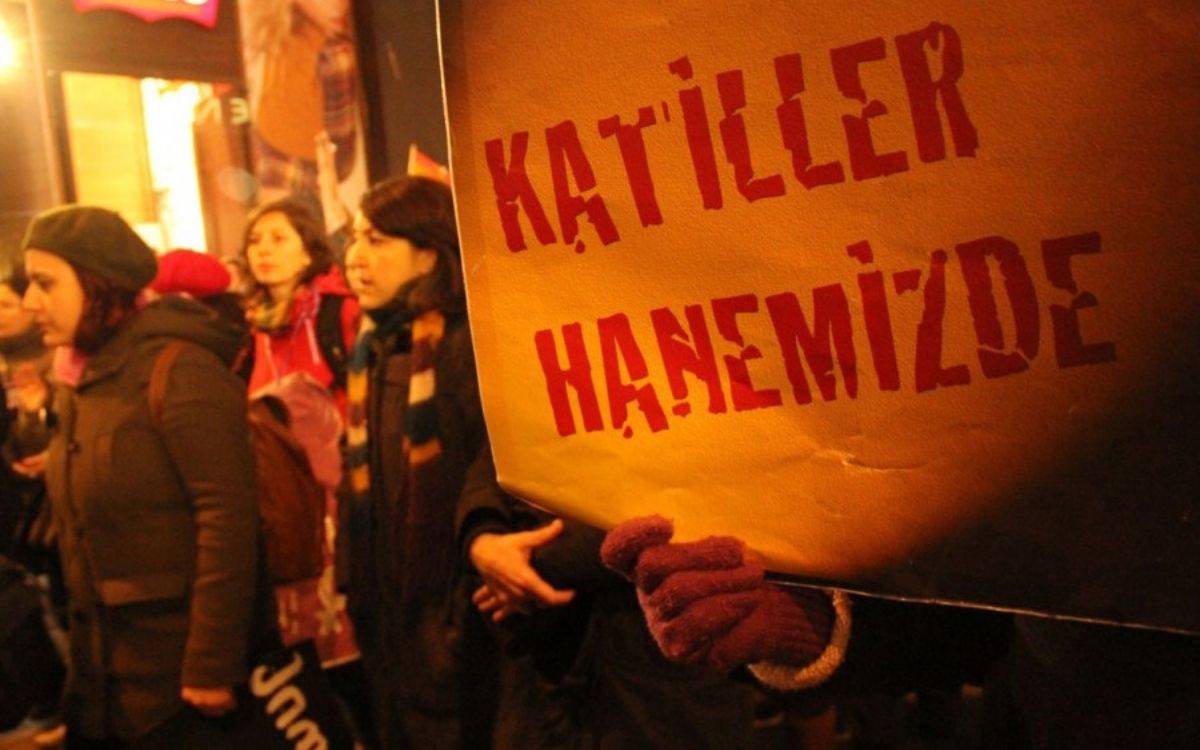
Woman alleges sexual harassment by police during İstanbul protest detention
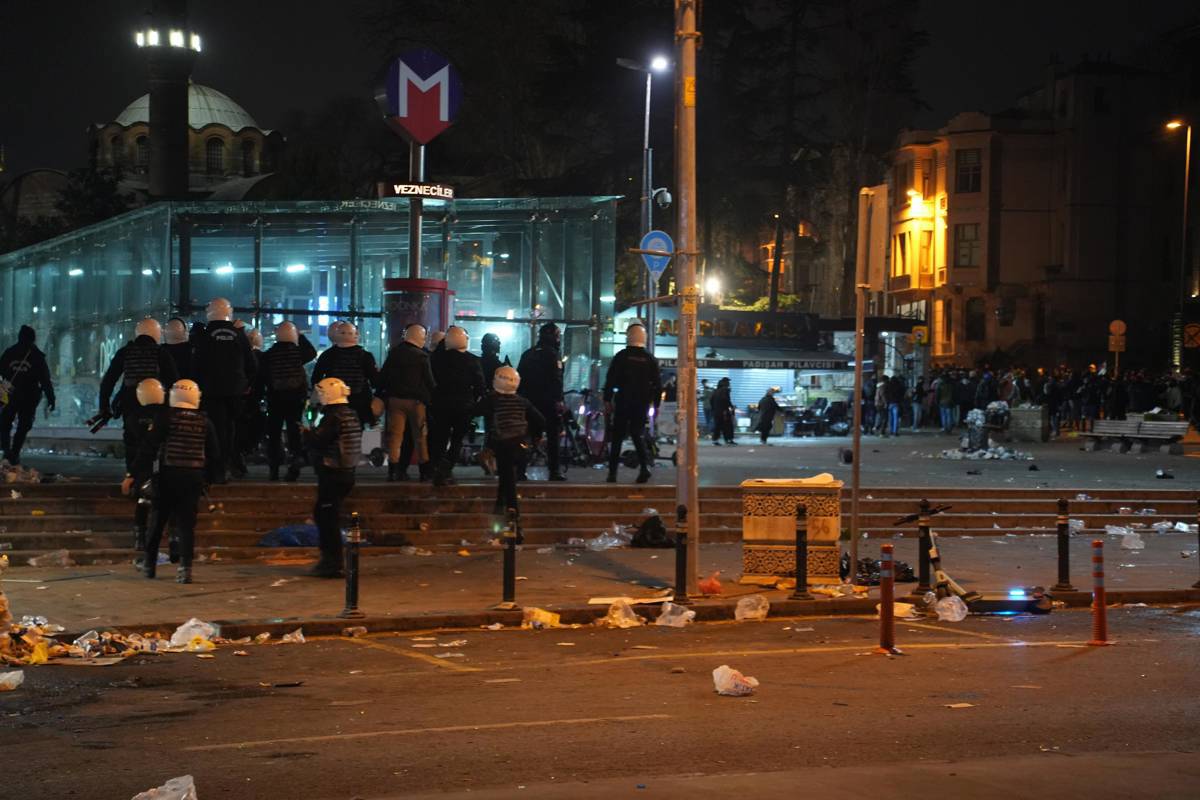






.jpg)
